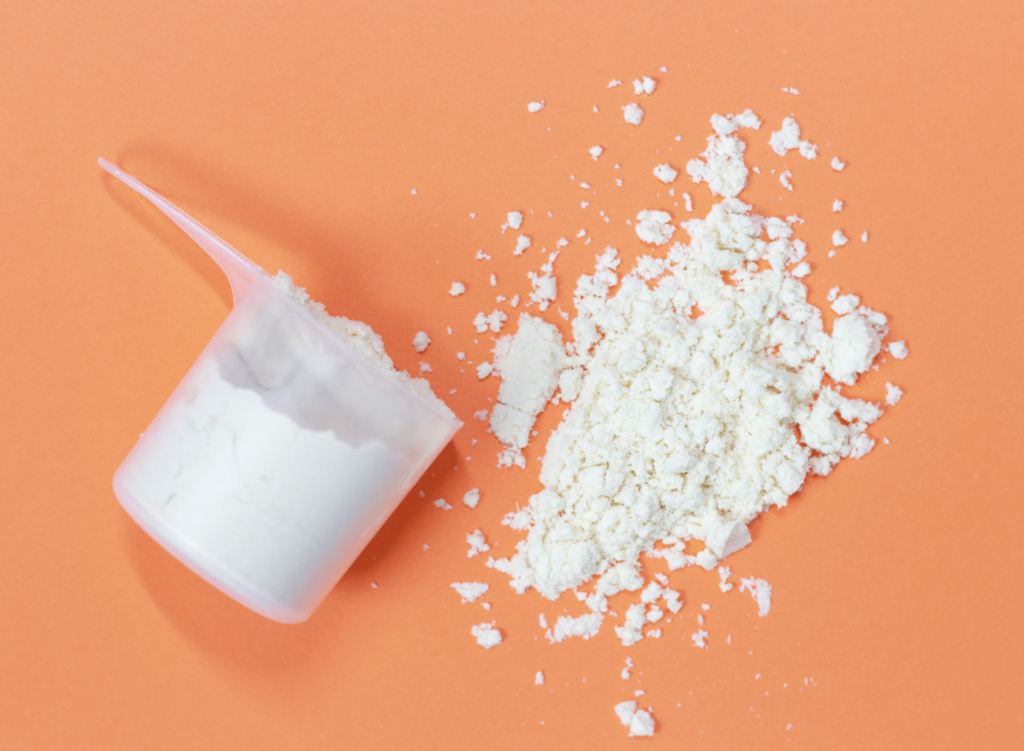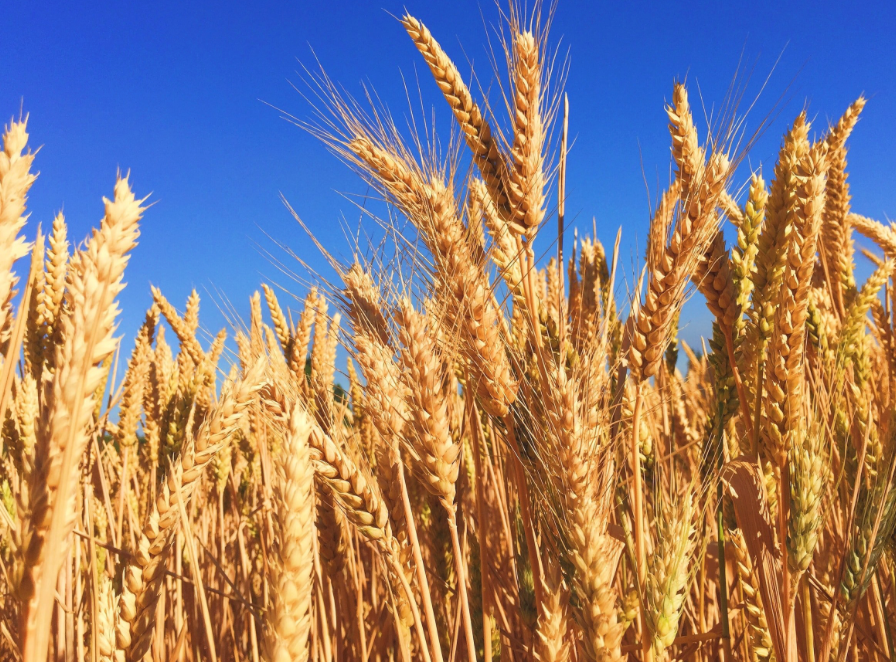In the realm of nutritional supplements, few compounds have garnered as much attention as L-Glutamine.
Glutamine is an amino acid produced by the body and found in food. Simply put, it’s a building block of protein and plays a critical part in the immune and digestive systems.
This essential amino acid has recently emerged as a powerhouse in the world of health and fitness.
Let’s delve into the intriguing story behind L-Glutamine, exploring its wide range of benefits, the intricate process of its production, and why you should take it.

The “L” in L-Glutamine refers to the configuration of the molecule’s structure, signifying that it’s commonly found in living organisms.
From Humble Beginnings
The story of L-Glutamine traces back to the early 19th century when scientists began studying the complex structure of proteins. In 1883, the German chemist Ernst Schulze isolated the amino acid from the protein gliadin found in wheat.
However, it wasn’t until the mid-20th century that researchers started to uncover its physiological significance. In the 1930s and 1940s, its role as a key nitrogen transporter in the body started to emerge, laying the foundation for further investigations into its functions and benefits…

Effects on Muscle Gain
Due to its role as a building block of protein, glutamine has been studied to improve muscle gain or exercise performance.
Whether your goal is to increase athletic performance, boost metabolism, improve recovery or even build muscle, research shows that L-glutamine can significantly aid your efforts. During an intense workout, your body becomes stressed, and your muscles and tendons require more glutamine than the amount supplied by a normal diet.
After an intense workout, the levels of cellular glutamine can drop by 50 percent and plasma levels by 30 percent. This muscle-wasting state is a gateway for the body to use your muscle for energy rather than carbohydrates, but glutamine can help prevent this from happening.
A study found that glutamine supplementation makes it possible to recover quicker from intense weight training sessions because it improves muscle hydration. This aids the muscle recovery process and reduces recovery time for wounds and burns.
It’s why glutamine supplementation is not only common for bodybuilders in the bodybuilding industry, but in nearly every athletic pursuit these days.

Effects on Exercise Performance
One of L-glutamine’s main roles in the body is to support detoxification by cleansing the body from high levels of ammonia. It acts as a buffer and converts excess ammonia into other amino acids, amino sugars and urea.
Doing approximately one hour of exercise can cause a whopping 40 percent reduction of glutamine in the body. It can also cause suppressed immune function.
L-glutamine benefits long distance athletes as well by boosting the immune system (T-helper cells). Animal studies have indicated that this increase in T-helper cells may reduce the “stresses” associated with overtraining syndrome.
Moreover, some intriguing research has reported that glutamine supplements can decrease muscle soreness and improve recovery after intense exercise – click here for more information.
Improves Gastrointestinal and Immune Health
L-glutamine benefits your overall health by supporting gut function and digestive processes. It can be beneficial if you have a digestive condition, such as:
- irritable bowel syndrome (IBS)
- an inflammatory bowel disease like Crohn’s disease
- ulcerative colitis
- diverticulosis
- diverticulitis
- leaky gut or any of the issues associated with leaky gut (like joint pain, rosacea or any type of autoimmune response)
It’s worth noting that the man famous for discovering the Krebs cycle in the body (also known as the “citric acid cycle“) was the first person to recommend taking L-glutamine for gut-related issues. That’s because Sir Hans Adolf Krebs — a German-born British biochemist who received the 1953 Nobel Prize for Physiology — found that it helped improve a healthy gut-related immune response.

It’s also known to play an important role in maintaining healthy gut microbiota and immunity. Furthermore, it seems helpful for reducing bacterial overgrowth of pathogens. This may reduce the risk for widespread issues ranging from constipation to weight gain.
Glutamine in food
It has been estimated that a healthy diet can typically contain 3 to 6 grams of glutamine per day, but this can vary based on your specific diet.
The largest amounts are found in animal products due to their high protein contents. However, some plant-based foods have a greater percentage of it in their protein.
One study used advanced lab techniques to determine how much is found in various foods.
The following are the percentages of protein made up of L-glutamine in each food:
- Eggs: 4.4% (0.6 g per 100 g of eggs)
- Beef: 4.8% (1.2 g per 100 g of beef)
- Skim milk: 8.1% (0.3 g per 100 g of milk)
- Tofu: 9.1% (0.6 g per 100 g of tofu)
- White rice: 11.1% (0.3 g per 100 g of rice)
- Corn: 16.2% (0.4 g per 100 g of corn)
More foods high in Glutamine:
- Spirulina
- Chinese cabbage
- Cottage cheese
- Asparagus
- Broccoli rabe
- Wild-caught fish (cod and salmon)
- Venison
- Turkey
How L-Glutamine is Made:
Glutamine is mainly made through a process called microbial fermentation. First, special bacteria are chosen and grown in large tanks with controlled conditions. These bacteria eat sugars and turn them into L-Glutamine. After that, the mixture goes through steps to be purified and concentrated. Finally, it’s ready to be used in different forms like powder or capsules.

The Versatile Amino
Muscle Recovery and Growth:
As the most abundant amino acid in muscle tissue, L-Glutamine plays a crucial role in muscle repair and growth. Athletes and fitness enthusiasts often supplement with L-Glutamine to support recovery after intense workouts.
Immune Function:
Glutamine is a preferred fuel source for immune cells, particularly lymphocytes and macrophages. It helps maintain optimal immune function, especially during periods of stress or illness.
Gut Health:
The intestinal mucosa relies heavily on glutamine for energy and repair. Supplementing this may help maintain the integrity of the intestinal barrier, supporting digestive health and reducing symptoms of conditions like leaky gut syndrome.
Nitrogen Balance:
Glutamine is intricately involved in nitrogen metabolism, playing a crucial role in maintaining nitrogen balance in the body. This is essential for protein synthesis, cellular function, and overall health.
Brain Health:
It also serves as a precursor for neurotransmitters like glutamate and GABA, influencing cognitive function, mood regulation, and overall brain health.
Closing Thoughts:
L-Glutamine stands as a testament to the remarkable intersection of science, health, and innovation. From its humble origins in wheat protein to its pivotal role in supporting muscle recovery, immune function, and gut health, the journey of L-Glutamine reflects our evolving understanding of human physiology and nutrition.

#fuelyourlife

